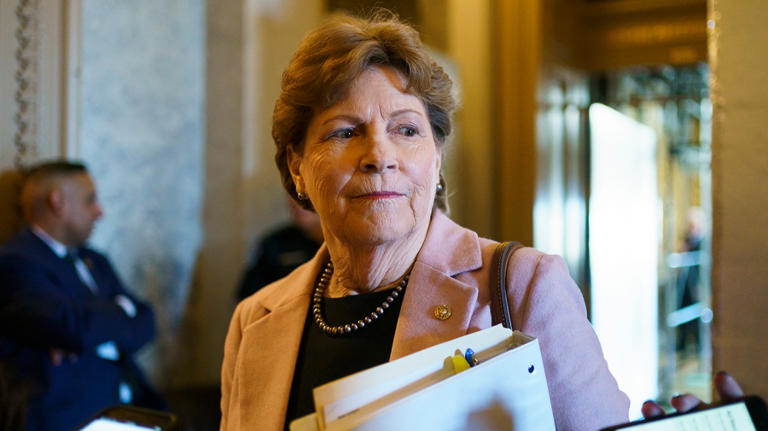
FILE PHOTO: A screen shows the trading info for The Walt Disney Company company on the floor of the NYSE in New York
Mon, March 27, 2023
By Dawn Chmielewski
LOS ANGELES (Reuters) -Walt Disney Co on Monday began 7,000 layoffs announced earlier this year, as it seeks to control costs and create a more "streamlined" business, according to a letter Chief Executive Bob Iger sent to employees and seen by Reuters.
Several major divisions of the company - Disney Entertainment, Disney Parks, Experiences and Products, and corporate - will be impacted, according to a person familiar with the matter. ESPN is not touched by this week's round of cuts, but is anticipated to be included in later rounds.
The entertainment industry has undergone a retrenchment since its early euphoric embrace of video streaming, when established media companies lost billions as they launched competitors to Netflix Inc.
Media companies started to rein in spending when Netflix posted its first loss of subscribers in a decade in early 2022, and Wall Street began prioritizing profitability over subscriber growth.
Iger said Disney would begin notifying the first group of employees who are impacted by the workforce reductions over the next four days. A second, larger round of job cuts will happen in April, "with several thousand more staff reductions." The final round will start before the beginning of the summer, the letter said.
The Burbank entertainment conglomerate announced in February that it would eliminate 7,000 jobs as part of an effort to save $5.5 billion in costs and make its money-losing streaming business profitable.
"The difficult reality of many colleagues and friends leaving Disney is not something we take lightly," Iger wrote, noting that many "bring a lifelong passion for Disney" to their work.
One of the first areas targeted for cuts was television production and acquisition departments, resulting in the departure of senior executives, a source confirmed.
Details of the layoffs had been closely guarded by the company, though insiders anticipated reductions would happen before Disney's annual shareholder meeting on April 3.
Anxiety has been building within Disney, as rumors swirled about areas of possible cuts.
"It’s a dark, black box," said one Disney executive who spoke to Reuters last week.
Many had expected cuts to fall heavily on the Disney Media and Entertainment Division, which was eliminated in a corporate restructuring. The unit has been without a leader since the exit of Kareem Daniel in November, shortly after Iger returned as the company’s CEO.
“It’s been a long time in the making,” said SVB MoffettNathanson analyst Michael Nathanson, adding that the company first began “to whisper” about the need to take out costs last fall, when Bob Chapek was still Disney’s chief executive.
Josh D’Amaro, chair of Disney Parks, Experiences and Products, sent a memo to theme parks employees in February warning that the profitable division would experience cuts.
Officials for two of the unions representing cast members at Walt Disney World Resorts in Orlando, Florida, said “guest-facing” services were not expected to be affected by the layoffs.
"I don’t see where, when there are labor shortages in front-facing guest roles, it would be a good decision to lay off workers where the money train starts for the Walt Disney Co," said Paul Cox, president of the International Alliance of Theatrical Stage Employees Local 631.
(Reporting by Dawn Chmielewski in Los Angeles; Editing by Bill Berkrot and Stephen Coates)
Disney Layoffs to Start This Week: Read Bob Iger’s Memo to Staff
Wilson Chapman
Mon, March 27, 2023

We knew mass-layoffs were coming to Disney, we just didn’t know when. That lingering question was answered Monday via a memo to staff from CEO Bob Iger.
In the email, obtained by IndieWire, Iger explained that approximately 7,000 jobs from the entertainment giant will be cut across three stages. The first group of impacted employees will receive their notices during the next four days. “Several thousand” more staff members will be reduced from the company next month, in April, and a final round of layoffs will occur “before the beginning of the summer.”
“The difficult reality of many colleagues and friends leaving Disney is not something we take lightly. This company is home to the most talented and dedicated employees in the world, and so many of you bring a lifelong passion for Disney to your work here. That’s part of what makes working at Disney so special,” Iger wrote in his staff memo. “It also makes it all the more difficult to say goodbye to wonderful people we care about. I want to offer my sincere thanks and appreciation to every departing employee for your numerous contributions and your devotion to this beloved company.”
The Disney layoffs come as part of Iger’s massive restructuring of several Disney divisions. The reorg, which comes after Iger returned to the CEO position last November after originally stepping down from the post in 2020, will reverse many of the decisions made by his successor/predecessor Bob Chapek.
The Disney Media & Entertainment Distribution tech and product team Chapek formed will be dismantled; Kareem Daniel, one of Chapek’s main appointments at the company and the head of the DMED division, exited in November. With the exception of the parks/products and ESPN, which are now standalone branches, the entertainment divisions at the company — including Disney Studios, General Entertainment, Animation, Disney+, 20th Century Studios, Searchlight, and Hulu — will be brought under the roof of Disney Entertainment, led by Dana Walden and Alan Bergman. Layoffs will especially target DMED employees, but all Disney branches may be affected.
Read the full memo from Iger below.

Dana Walden, Bob Iger, and Alan Bergman attend the 2023 Oscars - Credit: Getty Images
Getty Images
Dear Fellow Employees,
As I shared with you in February, we have made the difficult decision to reduce our overall workforce by approximately 7,000 jobs as part of a strategic realignment of the company, including important cost-saving measures necessary for creating a more effective, coordinated and streamlined approach to our business. Over the past few months, senior leaders have been working closely with HR to assess their operational needs, and I want to give you an update on those efforts.
This week, we begin notifying employees whose positions are impacted by the company’s workforce reductions. Leaders will be communicating the news directly to the first group of impacted employees over the next four days. A second, larger round of notifications will happen in April with several thousand more staff reductions, and we expect to commence the final round of notifications before the beginning of the summer to reach our 7,000-job target.
The difficult reality of many colleagues and friends leaving Disney is not something we take lightly. This company is home to the most talented and dedicated employees in the world, and so many of you bring a lifelong passion for Disney to your work here. That’s part of what makes working at Disney so special. It also makes it all the more difficult to say goodbye to wonderful people we care about. I want to offer my sincere thanks and appreciation to every departing employee for your numerous contributions and your devotion to this beloved company.
For our employees who aren’t impacted, I want to acknowledge that there will no doubt be challenges ahead as we continue building the structures and functions that will enable us to be successful moving forward. I ask for your continued understanding and collaboration during this time.
In tough moments, we must always do what is required to ensure Disney can continue delivering exceptional entertainment to audiences and guests around the world – now, and long into the future. Please know that our HR partners and leaders are committed to creating a supportive and smooth process every step of the way.
I want to thank each of you again for all your many achievements here at The Walt Disney Company.
Sincerely,
Bob
Wilson Chapman
Mon, March 27, 2023

We knew mass-layoffs were coming to Disney, we just didn’t know when. That lingering question was answered Monday via a memo to staff from CEO Bob Iger.
In the email, obtained by IndieWire, Iger explained that approximately 7,000 jobs from the entertainment giant will be cut across three stages. The first group of impacted employees will receive their notices during the next four days. “Several thousand” more staff members will be reduced from the company next month, in April, and a final round of layoffs will occur “before the beginning of the summer.”
“The difficult reality of many colleagues and friends leaving Disney is not something we take lightly. This company is home to the most talented and dedicated employees in the world, and so many of you bring a lifelong passion for Disney to your work here. That’s part of what makes working at Disney so special,” Iger wrote in his staff memo. “It also makes it all the more difficult to say goodbye to wonderful people we care about. I want to offer my sincere thanks and appreciation to every departing employee for your numerous contributions and your devotion to this beloved company.”
The Disney layoffs come as part of Iger’s massive restructuring of several Disney divisions. The reorg, which comes after Iger returned to the CEO position last November after originally stepping down from the post in 2020, will reverse many of the decisions made by his successor/predecessor Bob Chapek.
The Disney Media & Entertainment Distribution tech and product team Chapek formed will be dismantled; Kareem Daniel, one of Chapek’s main appointments at the company and the head of the DMED division, exited in November. With the exception of the parks/products and ESPN, which are now standalone branches, the entertainment divisions at the company — including Disney Studios, General Entertainment, Animation, Disney+, 20th Century Studios, Searchlight, and Hulu — will be brought under the roof of Disney Entertainment, led by Dana Walden and Alan Bergman. Layoffs will especially target DMED employees, but all Disney branches may be affected.
Read the full memo from Iger below.

Dana Walden, Bob Iger, and Alan Bergman attend the 2023 Oscars - Credit: Getty Images
Getty Images
Dear Fellow Employees,
As I shared with you in February, we have made the difficult decision to reduce our overall workforce by approximately 7,000 jobs as part of a strategic realignment of the company, including important cost-saving measures necessary for creating a more effective, coordinated and streamlined approach to our business. Over the past few months, senior leaders have been working closely with HR to assess their operational needs, and I want to give you an update on those efforts.
This week, we begin notifying employees whose positions are impacted by the company’s workforce reductions. Leaders will be communicating the news directly to the first group of impacted employees over the next four days. A second, larger round of notifications will happen in April with several thousand more staff reductions, and we expect to commence the final round of notifications before the beginning of the summer to reach our 7,000-job target.
The difficult reality of many colleagues and friends leaving Disney is not something we take lightly. This company is home to the most talented and dedicated employees in the world, and so many of you bring a lifelong passion for Disney to your work here. That’s part of what makes working at Disney so special. It also makes it all the more difficult to say goodbye to wonderful people we care about. I want to offer my sincere thanks and appreciation to every departing employee for your numerous contributions and your devotion to this beloved company.
For our employees who aren’t impacted, I want to acknowledge that there will no doubt be challenges ahead as we continue building the structures and functions that will enable us to be successful moving forward. I ask for your continued understanding and collaboration during this time.
In tough moments, we must always do what is required to ensure Disney can continue delivering exceptional entertainment to audiences and guests around the world – now, and long into the future. Please know that our HR partners and leaders are committed to creating a supportive and smooth process every step of the way.
I want to thank each of you again for all your many achievements here at The Walt Disney Company.
Sincerely,
Bob























